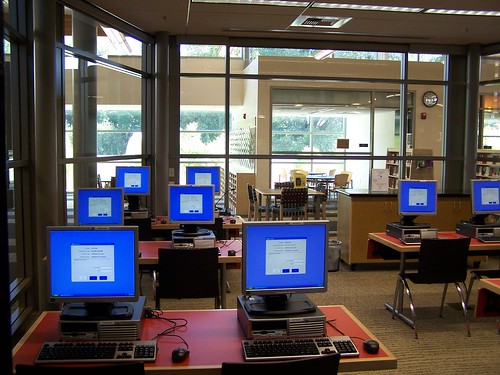 This past fall semester, I taught a course at Concordia called Youth and Media. My students were mostly 2nd and 3rd year university students, roughly between the ages of 20 and 22. Although we had plenty of interesting discussions about music, copyright infringement, video games and mobile phones, it became pretty clear pretty quickly that for them, Youth and Media meant one thing: Facebook.
This past fall semester, I taught a course at Concordia called Youth and Media. My students were mostly 2nd and 3rd year university students, roughly between the ages of 20 and 22. Although we had plenty of interesting discussions about music, copyright infringement, video games and mobile phones, it became pretty clear pretty quickly that for them, Youth and Media meant one thing: Facebook.
The stories they told to illustrate their points were not always upsetting, but those that were drew sympathetic gasps and nods from their classmates: house parties that had quickly gotten out of control, misunderstood postings that led to hurt feelings, cyber-bullying and romantic entanglements.
But what quickly emerged from this group of young adults was the fact that Facebook and other social media (MySpace, Friendster, etc.) had become both social conduits and social currency. That means that they used Facebook to communicate to each other, but also to establish their social positions in a group of friends. Whereas a text message between friends can transmit information, it’s generally just between those people; when something gets posted on your Facebook wall, it’s also a kind of performance. This is what theorist Sherry Turkle calls The Second Self – creating the virtual person that is your reflection online. We’ll revisit this idea in future postings.
In other words, almost all of their social interactions, friendships, romantic relationships, important life events and communication tended to get filtered through these media. This can be true for adults as well as teens, but since establishing one’s identity is a big pre-occupation for adolescents, it happens more with those under 18. Meeting a friend for lunch? Post it on Facebook. Get a new haircut? Ditto. Parties and even informal get-togethers tend to be oriented around the cellphone cameras that will capture images and post them online. In fact, my students told me they had once tried an “unplugged party” – no camera phones, no posting of anything online — and it felt really strange. One young woman told me that life with Facebook means “you feel you are always performing to the camera.”
What does this have to do with risk? Quite a bit, actually.
Facebook (and other social media) tend to be places where risky activities converge (to repurpose a tech term). That means that teens who are drunk, car surfing, smoking or passed out in a puddle of their own vomit tend to either post about it or capture each other on camera and post them online. Youtube in particular is full of videos of teens doing all sorts of high-risk activities and posting them for posterity. It’s gotten to the point where it’s hard to talk to teens about prevention without being aware that for adolescents, the performance of cool or daring is often more important than the thing itself. And that’s where technology can add to the risk.
Another way the Internet can add to the risk is by radically expanding the communities of influence teens to which teens are exposed, and by providing them with triggers to try high-risk activities. These include pro-anorexia and pro-cutting websites, videos and images of kids high on all sorts of substances. When one of my older daughters went online to look for information on hallucinogenic drugs for a school project, she found many more videos of kids getting high than those with any kind of educational or preventative angle.
So what does all this mean for our pre-teens and teens? Banning them from these sites would be pointless, but it would also miss the opportunity to teach them responsible use. My position is that with younger teens, tapering off as they demonstrate responsible behaviour, is the way to go. Of course, this all depends on each kid, since different levels of supervision may be necessary in different cases.
I’m putting together a posting on guidelines and best practices, but would welcome stories and suggestions from your own experience.

 This past fall semester, I taught a course at
This past fall semester, I taught a course at 